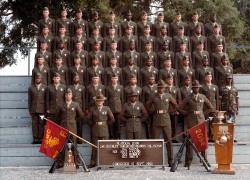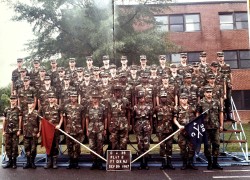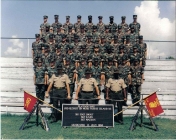Specialty Summary. Performs aircraft visual inspections and in-flight duties. Operates and monitors engine and aircraft systems controls, panels, indicators and devices. Manages flight engineer functions and activities. Related DoD Occupational Subgroup: 195000.
Duties and Responsibilities: Performs aircraft inspections. Performs aircrew visual inspection; non-scheduled aircraft maintenance; and preflight, through-flight, and post flight inspections of aircraft away from home station. Maintains aircraft forms and records during flight and while aircraft is away from home station.
Computes and applies aircraft weight, balance, and performance data. Determines and verifies passenger, cargo, fuel, and emergency and special equipment distribution and weight. Computes aircraft weight and balance to ensure specified limits are maintained. Computes takeoff, climb, cruise, and landing data. Determines engine fuel consumption using airspeed, atmospheric data, charts, computer, or electronic calculator. Records actual aircraft performance data in flight engineer's log.
Operates and monitors engine and aircraft systems controls and indicators. Assists pilot or performs engine starts, and monitors run-up, flight operations, and engine shutdown. Operates engine controls to provide desired efficiency and economy. Monitors engine instruments throughout period of operation. Controls, monitors, and regulates aircraft systems such as electric, communication, navigation, hydraulic, pneudraulic, fuel, air conditioning, and pressurization; ventilation; auxiliary power unit; and lubrication systems. Observes warning indicators and light for fire, overheat, depressurization, and system failure. Reports abnormal conditions to pilot, and recommends corrective action. Perform duties as gunner, hoist operator, and cargo sling operator.
Plans and organizes flight engineer activities. Organizes flight engineering standardization, qualification, and other requirements of flight engineer logs, reports, and records for accuracy, completeness, format, and compliance with current directives. Coordinates with other agencies and organizations to conduct flight engineer activities.
Directs flight engineer activities. Administers qualification flight to personnel engaged in flight engineer activities within flight test and operations organizations. Directs standardization of flight engineer performance in conjunction with aircraft performance engineering, engine conditioning, and preventive maintenance programs. Ensures conformance with prescribed aircrew procedures.
Inspects and evaluates flight engineer activities. Evaluates individual and group performance in terms of effectiveness and qualification in using equipment and materials. Interprets and discusses evaluation findings, and recommends action to correct deficiencies.
Performs technical flight engineer functions. Resolves technical problems encountered by operating units. Renders advice and technical assistance to agencies engaged in functions associated with flight engineer activities. Advises organizational commander or staff agencies on status of flight engineer activities and adequacy of equipment. Maintains qualification in aircraft.
Specialty Qualifications: Knowledge. Knowledge is mandatory of: electrical, communication, navigation, mechanical, hydraulic, and pneumatic systems applying to aircraft and related systems; flight theory; minor in-flight maintenance; personal equipment and oxygen use; aircraft emergency procedures; and using and interpreting diagrams, schematics, aircraft performance charts, loading charts, technical publications and flight manuals.
Education: For entry into this specialty, completion of high school with course in mechanics, mathematics, physics, computer principles, typing, speech, and English is desirable.
Training: Completion of the following training is mandatory for award of the AFSC indicated:
1A131. Completion of the basic flight engineer course.
1A151. Completion of an appropriate flying training course.
Experience: The following experience is mandatory for award of the AFSC indicated:
1A151. Qualification in and possession of AFSC 1A131. Also, experience is mandatory in functions such as aircraft and performance weight and balance computations, aircraft records maintenance, and aircraft systems maintenance and inspections.
1A171 Qualification in and possession of AFSC 1A151. Also, experience is mandatory in performing or supervising functions such as flight engineer activities.
1A191. Qualification in and possession of AFSC 1A171. Also, experience managing flight engineer functions and activities.
Other: The following are mandatory as indicated: For entry into this specialty: See attachment 4 for additional entry requirements. Prior qualification at the 5- or 7-skill level in the 1A0, 1A2, 1A3, 1A7, 2AXXX, or 2M0 career field ladder, or possession of a valid Federal Aviation Administration (FAA) Flight Engineer certificate, FAA private pilot license, or valid FAA aircraft and power plant license or Aircraft Maintenance Technician license. For entry, award, and retention of these AFSCs: Physical qualification for aircrew duty according to AFI 48-123, Medical Examinations and Standard, Class III medical standards. Qualification for aviation service according to AFI 11-402, Aviation and Parachutist Service, Aeronautical Ratings and Badges. Must maintain eligibility to deploy and mobilize worldwide. Specialty requires routine access to Secret material or similar environment. For award and retention of AFSCs 1A131/51/71/91/00, a current National Agency Check, Local Agency Checks and Credit (NACLC) according to AFI 31-501, Personnel Security Program Management. NOTE: Award of the 3-skill level without a completed NACLC is authorized provided an interim Secret security clearance has been granted according to AFI 31-501.




